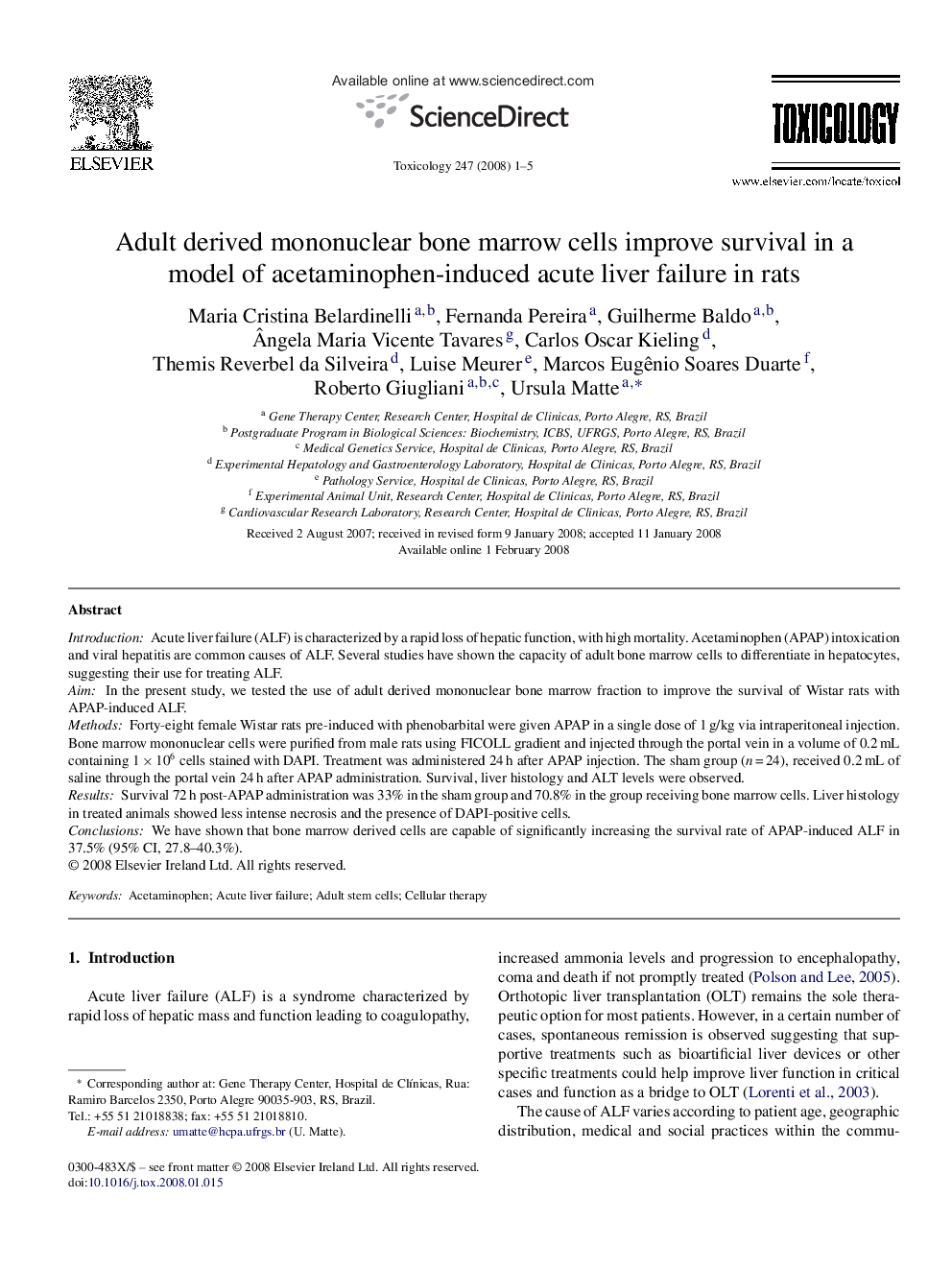| Article ID | Journal | Published Year | Pages | File Type |
|---|---|---|---|---|
| 2597117 | Toxicology | 2008 | 5 Pages |
IntroductionAcute liver failure (ALF) is characterized by a rapid loss of hepatic function, with high mortality. Acetaminophen (APAP) intoxication and viral hepatitis are common causes of ALF. Several studies have shown the capacity of adult bone marrow cells to differentiate in hepatocytes, suggesting their use for treating ALF.AimIn the present study, we tested the use of adult derived mononuclear bone marrow fraction to improve the survival of Wistar rats with APAP-induced ALF.MethodsForty-eight female Wistar rats pre-induced with phenobarbital were given APAP in a single dose of 1 g/kg via intraperitoneal injection. Bone marrow mononuclear cells were purified from male rats using FICOLL gradient and injected through the portal vein in a volume of 0.2 mL containing 1 × 106 cells stained with DAPI. Treatment was administered 24 h after APAP injection. The sham group (n = 24), received 0.2 mL of saline through the portal vein 24 h after APAP administration. Survival, liver histology and ALT levels were observed.ResultsSurvival 72 h post-APAP administration was 33% in the sham group and 70.8% in the group receiving bone marrow cells. Liver histology in treated animals showed less intense necrosis and the presence of DAPI-positive cells.ConclusionsWe have shown that bone marrow derived cells are capable of significantly increasing the survival rate of APAP-induced ALF in 37.5% (95% CI, 27.8–40.3%).
